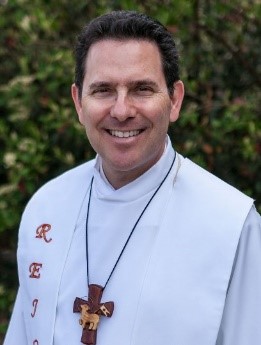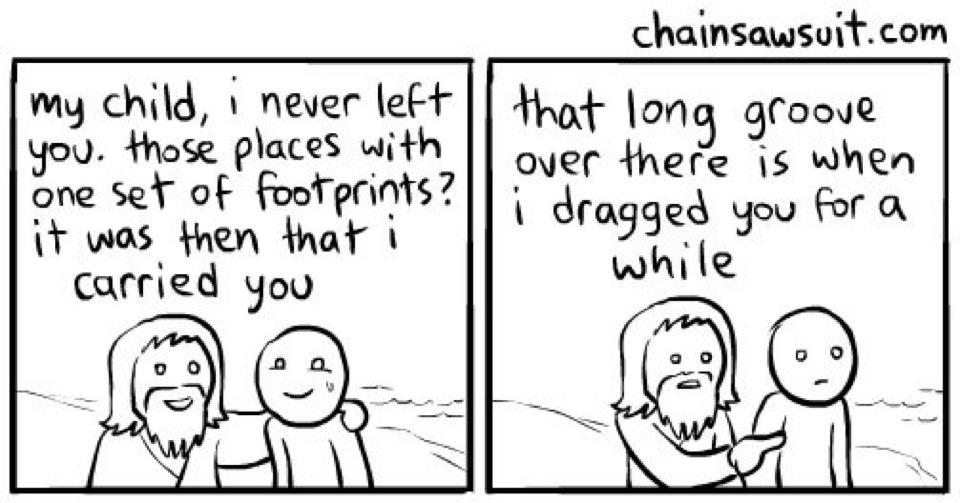Back in my younger days I was a “junior” volunteer fireman. Which basically means that since I wasn’t an adult, I couldn’t actually fight fires, but I could assist and learn. I spent most of my time washing fire trucks, spooling hose, sweeping the truck bay, and participating in parades in the summer time. But when not doing that, I had begun to learn how to hook up hoses, operate the pumper truck, wear “turnout gear” and even how to use an air-pack if required to enter a burning building. College and career ended up taking me away from my hometown and moving me to communities that had professional firefighters. And while I never had to put my life at risk in order to rescue the life of another, I gained an appreciation for those who do!
To a certain degree, though, I am still on a rescue mission … and so are you. To understand what I mean about that, take a look at these verses from Galatians chapter 1:
“Grace and peace to you from God our Father and the Lord Jesus Christ, who gave himself for our sins to rescue us from the present evil age, according to the will of our God and Father” (Galatians 1:3-4)
Ours is primarily a rescue religion. This Scripture teaches that Christ rescued us from this “present evil age.” I take that to mean that He didn’t just rescue us from ourselves or our own sin, or even just from the attacks of the devil, but He rescued us from the sins and attacks of other people, and in fact from all evil that assails us in this entire present age. We are under the curse of sin brought on us by the first sin in the Garden of Eden, and that curse pursues until this very day. But Christ has rescued us from it. In fact, He not only rescues us from the curse of death, He promises us eternal life in a new age, in the eternal Kingdom that He Has ushered us into! By His death He has won eternal life for us undeserving sinners who would otherwise eternally perish. This is truly a rescue, is it not?
Christ has rescued us from the clutches of hell, and when we share this “Gospel” (that Paul so adamantly defends in his letter to the Galatians) with others we, in effect, rescue them. In fact, this has become the mission of every Christian – to share this Good News. By saving us from death, Christ has now commissioned us to join Him on a rescue mission. He came to seek and save that which was lost and headed for death. So we now participate in that mission.
Beginning Sunday, April 8, we will begin a new message series at Redeemer called “Life on Mission.” The word “mission” has become sort of a buzzword in our culture. It seems as though every organization and business has a mission – whether it’s to get you to buy their product or adopt their priorities. I dare say that the Mission of God (Missio Dei) came first. In fact, our very life’s purpose, and therefore mission, as Christians is established and defined by God. The challenge for us is to understand and undertake that mission. And so we will be taking six weeks to be equipped for living lives on mission:
April 8 – Overview – As His followers, Jesus calls us to be witnesses—to tell our stories. We don’t have to be experts in theology or know all the answers about the Bible, but we do have to be willing to tell people why we believe, and how we have been changed by the hope that is in us.
April 15 – Connect – It may seem obvious, but if we never connect and spend time with people who are far from God, it’s going to be impossible to introduce them to Jesus. Jesus set an example for us by hanging around with people who needed Him, and He calls us to do the same.
April 22 – Serve – Jesus told us to love God and love others. Love, however, is often misunderstood. To simply say that we love others, but never cross the room to serve them may ring hollow. When we serve people, we show them that they are unique individuals who are loved by God and loved by us.
April 29 – Share – Just meeting physical needs, however, is not sufficient “rescue work.” God asks us to be bold, and to share our own faith experience and knowledge. We must be ready to state clearly and simply how Jesus has changed our lives.
May 6 – Grow – Having a relationship with Jesus should change us. The Bible tells us that we are to be transformed – not merely self-improved. As disciples of Jesus we are to develop daily habits that help us grow to be more like Him.
May 13 – Pray – If we are on a mission to connect, serve, share, and grow, doesn’t it make sense that we should stay in communication with the One who is sending us out? Prayer is how we stay connected to God, and is the source of our power and strength we need for our rescue mission.
Joining Jesus on His rescue mission,
Pastor Augie
 At Redeemer, we’re relational. This is an important aspect of our ministry. It means to us that people matter and relationships matter. They matter to God. When God created the first human being, He said, “It is not good for the man to be alone.” (Genesis 2:18). Then when man’s sin caused distance between God and mankind, The Father sent His Son Jesus into the world to suffer and die so that we would once again be restored in our relationship with God (Romans 5:10) – as well as in our relationships with one another (2 Corinthians 13:11). Though this restoration won’t be realized worldwide until our Lord returns, at Redeemer we enjoy this restoration and the presence of the Kingdom of God among us now. It’s a beautiful thing and one of the things I love about Redeemer! I look f
At Redeemer, we’re relational. This is an important aspect of our ministry. It means to us that people matter and relationships matter. They matter to God. When God created the first human being, He said, “It is not good for the man to be alone.” (Genesis 2:18). Then when man’s sin caused distance between God and mankind, The Father sent His Son Jesus into the world to suffer and die so that we would once again be restored in our relationship with God (Romans 5:10) – as well as in our relationships with one another (2 Corinthians 13:11). Though this restoration won’t be realized worldwide until our Lord returns, at Redeemer we enjoy this restoration and the presence of the Kingdom of God among us now. It’s a beautiful thing and one of the things I love about Redeemer! I look f orward to sharing with you more of what I love about Redeemer. In the meantime, I encourage you to search through some of the articles, resources, references and links that we provide. We don’t want to overload you with information, but we do want to help you get connected. After all – you have a million places that you can get information … but we want to help you get connected to God, to His Family, and to His Purpose for your Life. We call that WORSHIP – GROW – and SERVE. That’s what we’re doing at Redeemer … and I love it! And I’d love for you to join us. If I can answer any questions you might have or be of assistance in any way just let me know! I’d love to chat with you. May the Lord bless and keep you! Pastor Augie
orward to sharing with you more of what I love about Redeemer. In the meantime, I encourage you to search through some of the articles, resources, references and links that we provide. We don’t want to overload you with information, but we do want to help you get connected. After all – you have a million places that you can get information … but we want to help you get connected to God, to His Family, and to His Purpose for your Life. We call that WORSHIP – GROW – and SERVE. That’s what we’re doing at Redeemer … and I love it! And I’d love for you to join us. If I can answer any questions you might have or be of assistance in any way just let me know! I’d love to chat with you. May the Lord bless and keep you! Pastor Augie










